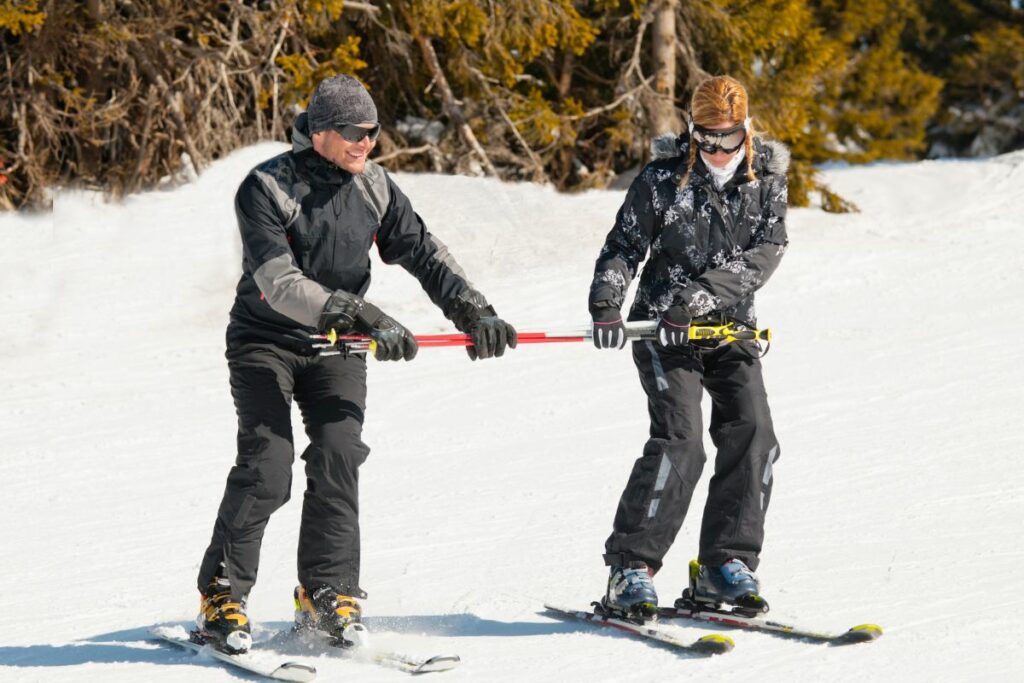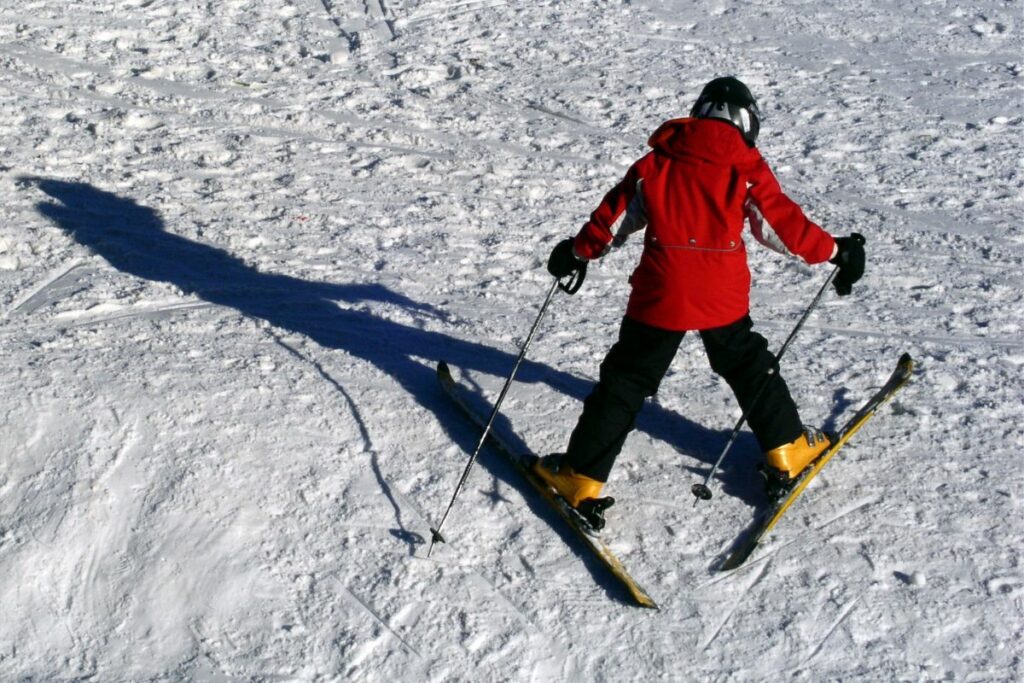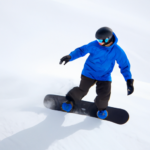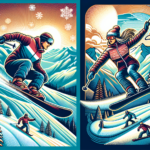There are many things to love about skiing, the snow, the cold temperatures, the adrenaline rush – but one question that comes up a lot is how long it takes to learn to ski.
Unfortunately there Isn’t a definitive number of hours required to learn to ski as there are many variables.

If you ski regularly and have professional lessons you will learn quicker than someone who only spends a week per year on the slopes.
It also depends what kind of learner you are and if you pick up things quickly or need a little more time to master new skills.
So if you have mastered the basics how long does it take before you are considered a “good” skier?
Definition Of “Good”
The word “good” is used often in the context of skiing, but there isn’t one clear definition of what it actually means.
You might hear someone say “he’s a really good skier,” or “she’s a very good skier.” but the term can be confusing.
So let’s look at the different stages of learning to ski and what you’ll learn at each stage to try and figure it out.
Beginners
You don’t need to be a seasoned pro to enjoy skiing, especially if you’re just starting out.
A beginner course is perfect for those looking to try something new and improve their skills without having to commit to a full season of lessons.
You’ll start off in a smaller group with other beginners, so you’ll get plenty of one-to-one tuition while still being part of a larger class.
The sessions usually last about 2 hours, so you’ll have plenty of time to practice whatever you want to during breaks. Most schools offer all-day courses, too, so you can fit in extra practice whenever you feel like it.
Before you head out, you’ll get to know some of the basics of skiing, including the terminology, so you’ll understand exactly what you are learning and be able to take instructions.
Your instructor will show you how to put on your skis, tighten your boots, and how to move around on flat ground. Once you’re comfortable doing this, you’ll learn how to control your speed and stop, and how to turn.
After that, you’ll spend most of your time practicing on gentle slopes, so you can get familiar with the basic controls. By the end of the day, you’ll unsresartmad the basics of skiing. With a bit of practice it could be said you’re a “good beginner”.
Intermediate
The intermediate level is where most people spend the majority of their time on the slopes. You’ve mastered the basics of skiing and are ready to take on some of the more challenging aspects of skiing.
This is the perfect opportunity to learn about different types of terrain, such as bumps, moguls and rails.
You’ll also want to focus on learning how to turn and link turns properly.
By doing this, you’ll become much better at skiing on groomed trails, and will develop skills that will help you progress onto harder terrain.
As well as improving your ability to deal with difficult terrain, you’ll also begin to understand what makes a good run, and why certain features are useful.
This is the stage where you’ll find yourself skiing more often because it allows you to enjoy the best bits of the resort without having to worry too much about getting hurt.
Advanced
Whilst learning skiing basics is essential, there’s plenty more to learn once you’ve got the hang of things.
For example, you could focus on improving your technique by practicing different types of turns, such as linking turns or making smaller, tighter ones.
Or you could practise turning around objects, including trees, rocks and other people.You could even combine both approaches, practicing tight turns around obstacles and wider arcs to carve down long runs.
Whatever you choose, just remember that the best way to learn anything is to practise it. Once you feel comfortable doing something, you’ll find it easier each time you do it.
How To Improve

If you want to master skiing fast, there’s no better way than to do what everyone else does—go to the slopes on a regular basis.
But if you’re just starting out, you might feel overwhelmed by the sheer number of things to learn. So how can you get up to speed without getting lost in the process?
First off, avoid pushing yourself too hard in those early days.
Every time you go skiing you’ll be improving, and you’ll soon start to notice improvements, and once you’ve mastered the basics, try something different.
Here are some top tips that’ll help you get the most out of every day on the mountain.
1. Find A Run You Like
You’d think finding a ski slope you love would be easy, but it takes practice to really fall in love with a run.
Start small, and choose a gentle hill where you can focus on learning the basic moves. Then gradually increase the intensity.
2. Get Out There Early
The earlier you hit the slopes, the less crowded they’ll be. And when you’re not surrounded by other skiers, you’ll have the chance to concentrate on your form and perfect your technique. Plus, you won’t have to wait in line for lift passes!
3. Keep Your Focus On Technique
When you first start skiing, you’ll probably spend all your time concentrating and trying not to fall over. But as you improve, you’ll need to focus on developing your technique instead.
This means focusing on the right movements, rather than worrying about staying upright, that should happen naturally the better you get at the technique.
4. Don’t Be Afraid Of The Slopes
When you’re new to skiing, you’re bound to make mistakes. That’s why it’s important to keep an open mind and don’t let fear stop you from trying new things.
Instead, take each mistake as a lesson and use them to build confidence.
5. Practice Makes Perfect
Once you’ve found a run you like, you’ll want to practise it over and over again until you can do it perfectly. This will give you the confidence to tackle any terrain, and will also help you to improve your technique.
Conclusion
How long it takes to learn to ski depends entirely on you. If you put in the effort, you’ll see results quickly. Just remember: the more you practise, the faster you’ll progress.
- How to Choose a Skim Board - September 10, 2023
- is Skim Boarding Hard? - February 8, 2023
- How To Wax a skim board - February 8, 2023










